Text
An Overview of OGDscopy Course for Medical Professionals
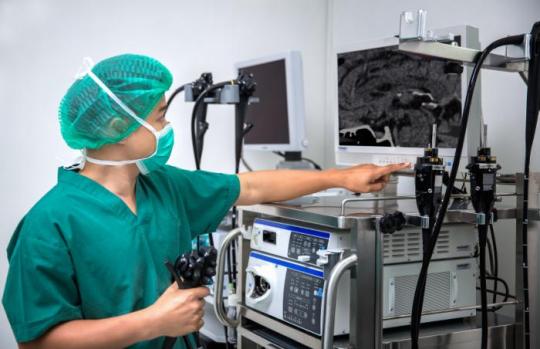
An OGDscopy is known in medical terms as oesophago-gastroduodenoscopy. Doctors sometimes refer to the procedure more simply as a gastroscopy. During an OGDscopy, the doctor examines the patient’s gullet, stomach, and duodenum. The checks are performed with the help of a tool called a gastroscope. The gastroscope can send images on a screen for the endoscopist to view in order to make a diagnosis.
An OGDscopy is generally performed when patients complain about facing symptoms such as vomiting, black stools, indigestion, or issues in swallowing. As part of the diagnosis, the doctor may also take a small section of tissue from the digestive tract – a procedure known as a biopsy. This sample will be sent for further investigation.
An OGDscopy is carried out keeping patient comfort in mind. To that effect, a sedative or anaesthesia spray may be administered. It is important that the patient does not eat or drink anything for a couple of hours before the process.
Pursuing an OGDscopy course
An OGDscopy calls for extremely deft movements on the part of the doctor performing the procedure. Any mistakes can lead to a perforation in the stomach lining or damage to the patient’s teeth. Owing to the skill required to carry out this examination, medical practitioners often opt to pursue a special OGDscopy course.
An OGDscopy course is generally targeted towards program participants who are practising gastroenterologists, practising physicians, practising surgeons, and practising endoscopists. The course may also be pursued by gastroenterologist fellows.
A good OGDscopy course generally involves a blended learning approach that includes a period of observation followed by hands-on learning and training. Course participants may also benefit from traditional lectures, printed and video learning material, and discussions with other attendees as a part of the training module.
Admission to an OGDscopy course generally forms a part of continuing medical studies (CME). Reputed medical platforms reward trainees with a certificate of completion that boosts their efforts at CME. These certificates help affirm that the medical practitioner is up-to-date with the latest developments in medical studies and are thus, competent enough to offer their patients the best in health care.
An OGDscopy course is generally conducted by an expert in the field of gastroenterology. The educators will usually have several years of experience in training endoscopists as well as an exemplary record practising medicine.
Towards Continuing Medical Learning
Medical practitioners often seek out courses as part of their efforts for CME. CME helps a healthcare professional earn necessary licences or certificates that prove they are qualified to practice. It also enables them grow in their field professionally. Medical Learning Hub (MLH) is a platform that offers a wide range of courses for CME for doctors. The courses span across many specialities in medicine and are conducted by field experts. The modules include a variety of learning techniques such as live observation, lectures, video lessons, and simulation, among others to truly help course participants get the most out of their training. To view a complete list of the available courses and webinars, long on to the MLH website today.
Reference
http://www.wales.nhs.uk/sitesplus/documents/866/PIU911%283%29%28ABUHB%29%28Active%29%28JULY%2019%29%28RGH%20GASTRO%29.pdf
https://invivox.com/training/detail/WGIN55210
https://storage.googleapis.com/industryinvivox-staging/uploads/training/fBfvFoSIoXnoSd0QvKIL9zSteDjrDQ9lSt3dkbav.pdf
0 notes
Photo

COVID-19 Webinar: Watch as infectious disease expert Dr. Hasseltine discusses the COVID-19 outbreak, how we should respond to it & lessons on future outbreaks.
0 notes
Photo
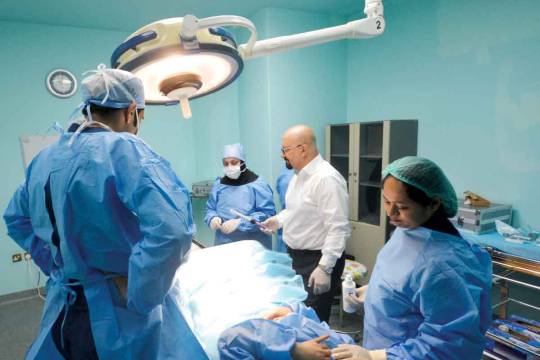
Medical Learning Hub is one of the best platforms for gynaecology course in India. You can find and join numerous fellowship programs online and learn from the best! It's easy to stay current with their medical education programs. They even provide a medical certificate online after completion of the course.
0 notes
Text
A Look at the Current Case Management Protocol for COVID-19

The novel coronavirus was declared a global pandemic in March 2020. Till date it has affected more than 200 countries with over 9.36 million cases in total. Researchers and medical professionals are working around the clock towards developing an effective vaccine. As the world waits for deliverance from this health crises, let us look at the current case management protocol for COVID-19.
An Overview of COVID-19 Symptoms
The symptoms of the infectious novel coronavirus are high fever, cough, loss of taste and smell, and difficulty in breathing. If a patient reports any of these symptoms, they need to immediately follow their country’s protocol for testing and self-isolation / treatment.
Case Management of COVID-19 - Mild Infection
At present, patients displaying mild symptoms of COVID-19 infection are asked to quarantine themselves at home. In some cases, they may be quarantined at facilities provided by local or national authorities. Isolating infected patients will help break the chain of transmission.
Patients at a heightened risk of complications due to comorbidities are kept under close examination. If any symptoms seem to worsen, the patient is immediately hospitalized for treatment. High risk groups include patients above the age of 60 years and those with health conditions such as diabetes and hypertension.
This is a general overview of case management for mild COVID-19 infections. Do contact your doctor for instructions specific to your health needs.
Case management of COVID-19 - moderate infection
Patients with moderate infection (pneumonia) are admitted to a health care center or hospital for isolation and treatment.
These patients undergo a thorough medical check-up for comorbidities as well as examination of complete blood count and vital signs. The treatment given generally includes Hydroxychloroquine, oxygen support, and control of comorbid health condition. Patients are also constantly monitored for any increase in breathing difficulties and secondary bacterial infections.
This is a general overview of case management for moderate COVID-19 infections. Do contact your doctor for instructions specific to your health needs.
Case management of COVID-19 - severe infection
Severe cases are those that exhibit extreme respiratory problems or hypoxaemia. Treatment protocol includes immediate hospitalization with oxygen therapy. Patients who are out of shock, require fluid management. If regular oxygen therapy does not work, the patient is given high-flow nasal cannula oxygen therapy. If no improvement is noticed, tracheal intubation is done. For severe infections in pregnant patients, an obstetrics specialist must be consulted.
This is a general overview of case management for severe COVID-19 infections. Do contact your doctor for instructions specific to your health needs.
Looking Forward
As the world still struggles to free itself from the shackles of the virus, information is our strongest line of defence. Knowing the symptoms and precautionary measures can help contain the spread of the virus. Medical Learning Hub is an online platform that offers courses and webinars with the latest information on the novel coronavirus. Whether you are seeking to continue your medical education or simply stay informed on the latest developments in research, Medical Learning Hub has a wide range of resources to help you get started. Log on today to begin learning. Stay safe.
References
https://www.thelancet.com/journals/lancet/article/PIIS0140-6736(20)31278-2/fulltext
https://www.mohfw.gov.in/pdf/ClinicalManagementProtocolforCOVID19.pdf
0 notes
Photo

Be part of an exciting hands-on course: skin care is a 02 days course. This course walks you through the fundamentals of aesthetics & latest cosmetology making sure your core foundation of skin care knowledge is solid.
0 notes
Photo
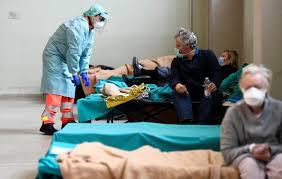
Subject matters experts discuss how we should respond to COVID-19, managing spread of coronavirus, future outbreakes of COVID-19 and other pertinent topics. Watch now
0 notes
Photo
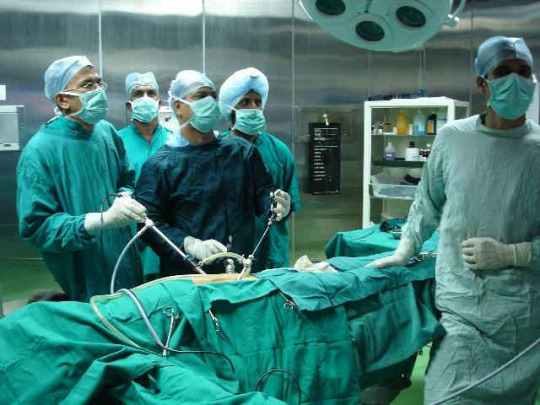
Find advance course in medical education that will help better your professional profile. There are many online medical courses for doctors, that are presented by expert professionals in the medical training field. Check out Medical Learning Hub to find the medical training courses that you are looking for.
0 notes
Text
Hands-on Medical Training at Medical Learning Hub
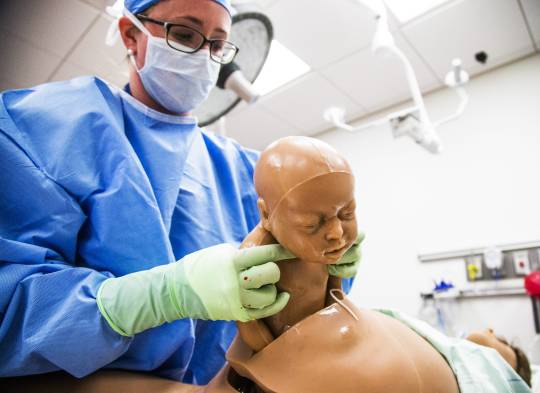
Learning never stops for the medical professional. Even after having practised in the field of your specialization for several years, you would still keep learning in order to update yourself with the latest discoveries in the field of medical research. After all, patients depend on your expert care.
Yet, as a busy medical professional it is probably hard to find the time to look for the right resources for the latest research and hands-on medical training. This is where we, at Medical Learning Hub, step in to help you out.
At Medical Learning Hub, we have a wide range of medical courses, expert webinars, and more all tailor-made for the actively medical professional. Here are some of the main advantages of pursuing your medical learning on our platform.
· Wide Range Of Courses
At Medical Learning Hub, we offer a broad selection of courses and webinars that cover the latest learnings in paediatric care, laparoscopy, assisted reproductive techniques, new-age dentistry, eye care, haematology patient care, cosmetology, and more. We also have special trainings that focus on the impact of the current COVID 19 pandemic on various aspects of medical health care. With over 1200 training courses spread across 215 institutions, the numbers speak for themselves.
· Spearheaded By Leading Experts
At present, we have 4000 noted experts on our faculty. All our courses and webinars are headed by medical professionals who are known for achievements in their areas of expertise. They have years of experience in practice and in the classroom. With us, you can be sure to learn from the best minds in medicine.
· Holistic Approach To Teaching
Our courses follow a wide range of training methods to ensure you get a comprehensive understanding of the subject matter. We have lectures, on-site training, live video teaching, simulation, and even online lessons. Above all, we do focus on hands-on medical training as an important aspect of our main courses. Medical learning has never been so convenient.
· One-Stop Platform For Educators
If you would like to be a teacher, Medical Learning Hub can connect you to your students. We offer our website as a platform for medical teachers, medical organizations, and even pharmaceutical companies so that they can reach out to a global audience waiting to hear what they have to say. All you have to do is log on to our website and create a profile. From there, the options are endless. You can list out the courses you offer and draw in a classroom of students from around the world.
At Medical Learning Hub, we truly value the service our medical professionals render to society. We especially want to thank all doctors, nurses, and other professionals in the medical field bravely working at the front of the COVID 19 pandemic. On our part, we can offer a platform of the latest resources for reliable learning in the field of medical studies. Log on to Medical Learning Hub today and find the course of your choice.
All the best.
References
https://medicallearninghub.com/search/course?query=
https://medicallearninghub.com/
0 notes
Text
Everything You Need To Know About Social Wellbeing During COVID-19

The illness caused by the novel strain of the coronavirus found in Wuhan has spread to all corners of the world. It has affected millions of people and has caused most of the world to come to a standstill. Many of us have felt the effect of the illness even if we haven’t been infected by it.
Being under lockdown, the stress of working from home or the loss of a job and the absence of social interaction has had an adverse on numerous aspects of life. In the midst of a crisis like this, it can be extremely difficult to maintain a healthy lifestyle.
There’s so much of news coverage, most of our sleep cycles have changed, and eating patterns have also gone for a toss. All this will lead to numerous ill effects on the society as a whole, yet not much has been said about social wellbeing during COVID-19.
Cigna’s COVID-19 Global Impact Study has shown that indices for financial and social well-being have dropped. Financial wellbeing indices are down by 1 point between January & April of 2020 (55.8 – 54.8) and social wellbeing is down by 0.8 points (63.2 to 62.4) for the same timeframe.
How to maintain social wellbeing during COVID-19?
Connect with loved ones, virtually: While nothing can replace a hug and face-to-face interactions, hearing from some dear can have a huge positive effect on your day. So reach out to friends, family and co-workers, it is sure to uplift your spirit.
Cut down screen time: Constant bombardment of negative news stories is not good for social wellbeing during COVID-19. It creates a sense of fear and anxiety amongst people. However, at the same time, stating informed is also important. Therefore, listen in to the new but limit your amount of screen time, this applies for social media as well.
Be positive and play it forward: Try and be as positive as you can. This applies to social media as well. Try and spread positive news, just ensure it is from a reliable source. If we all spread good news, it is about to be good for our social wellbeing during COVID-19.
What about mental & physical wellbeing?
Mental & physical fitness are also important for social wellbeing during COVID-19. When it comes to keeping your mind in a good place, you could practise meditation or learn a breathing exercise. It is also important to be generous and kind – helping others can have a profound effect on one’s own mental wellbeing.
Physical wellbeing is also important. Simple things like sleeping well, eating properly, setting a routine, etc. can do a world of good for you. You could also squeeze in 20 or 30 minutes of exercise or yoga to keep your body in shape.
It is important to focus on
social wellbeing during COVID-19
. The battle against the virus is being fought not just at hospitals, but in our home and our minds as well. Hope this has been helpful, stay home, stay safe and stay health!
0 notes
Text
Importance Of Continued Medical Education
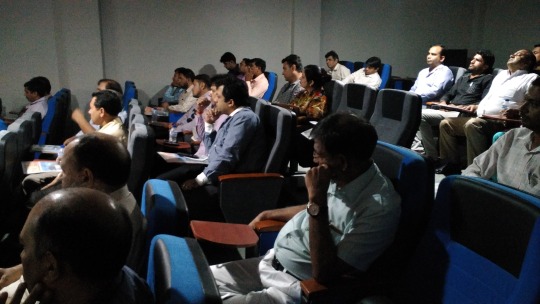
The medical profession is a noble one. However, it is also one that is constantly evolving and changing. Medical breakthroughs, new technology, new procedures, new drugs – there’s so much that a healthcare professional needs to stay up to date with to ensure he/she is able to provide the best care possible. But how do we ensure that all practitioners make an effort to stay current with the happenings in their field? Well, the answer is simple – continued medical education.
This article will explain the importance of CME and how doctors can keep their in touch with their CME requirements.
1. Firstly, You Need CME To Meet Licensing/Certification Requirements
The acceptable level or required amount of CME varies across medical disciplines. However, the importance of CME remains the same, no matter the specialty or field of practice in which a healthcare provider is engaged. If you do not meet the required level of CME, you are risking your license and hefty fines as well. Therefore, all medical practitioners need to rack-up at least 30 hours of CME every 5 years. Fail to do so and your registration to practice would be suspended.
2. To Deliver Best Possible Care
It is only through CME that healthcare professionals can deliver the best possible patient care. If they are not updated with the latest procedures, they might make use of older methods which may or may not be the most efficient course of treatment. In this way, continued medical learning also reduces risks as practitioners with the latest training and education are less likely to commit mistakes.
3. Introduction To New Technology & Care Techniques
Today, innovation exists in every field of medical practice. So much so that, norms, techniques and equipment that was state-of-the-art now, could become obsolete in a few years. Medical professionals need to stay abreast with these developments. The easiest way to do this is to attend CME programs regularly.
How To Find CME Courses?
Becoming a medical professional, especially a doctor, requires many years of training and education. However, this does not stop after you get your degree and license to practice. You need to stay constant with the field through CME. The only issue is finding quality CME programs to attend.
To accumulate CME credits, you need to attend training programs that are accredited by the MCI, the IMA, the API, and other regulators. The easiest way to find such courses is to go online. These days there are several platforms that allow HCPs to find CME opportunities across specialities in one single website.
You can participate in online CME programs in the comfort of your home or in between patients at your hospital or clinic. There might be a small test to evaluate your learning and you will also be provided with a certificate for the course. In case the CME program is not in your home city, some of the better platforms will also help arrange the travel & boarding requirements. We hope this has been helpful, good luck and all the best!
0 notes
Photo
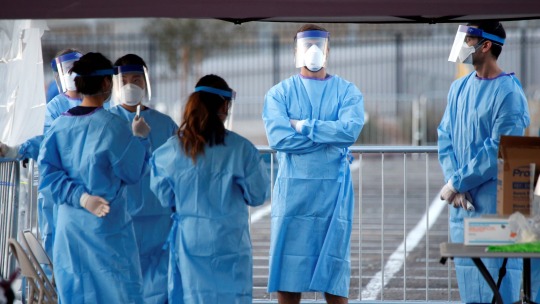
Kenya Medical Association presents knowledge to healthcare workers for COVID-19. An online course covering infection prevention and control, diagnosis & other aspects of COVID-19.
0 notes
Photo

Find online medical education courses that will help better your professional profile. There are many online medical courses for doctors, that are presented by expert professionals in the medical training field. Check out Medical Learning Hub to find the medical training courses that you are looking for.
0 notes
Photo

This 36-minute video talks about self-care guidelines for healthcare workers battling the novel COVID-19. Learn about professional, mental & physical wellbeing during COVID-19.
0 notes
Photo
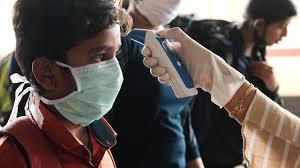
Kenya Medical Association presents Case Management of COVID-19. An online course covering infection prevention and control, diagnosis & other aspects of COVID-19.
0 notes
Photo
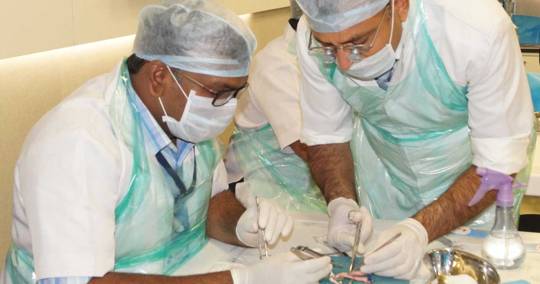
Be part of an exciting hands-on course : basic and advanced hysteroscopy is 03 days course.Educational methods Live case observation, Lectures, Video, Simulation.
0 notes
Text
Your One-Stop Guide For COVID-19

In early 2020, a new virus began generating headlines all over the world. Within months, the virus that originated in Wuhan, China has spread to as far-flung regions as the United States. Now officially named SARS-CoV-2, the virus has affected millions of people around the world. The disease caused by an infection with SARS-CoV-2 is called COVID-19, which stands for coronavirus disease 2019.
Despite the global panic about the virus, you’re unlikely to contract SARS-CoV-2 unless you’ve been in contact with someone who has a SARS-CoV-2 infection. However, how can you make sure of that? Moreover, basic symptoms of the disease are similar to that of common cold. So, how do you distinguish it from similar conditions? Here is all the information that can help you.
What Are The Symptoms?
As research continues, newer information about the virus comes to light each day. Based on the current base of knowledge and observation, COVID-19 does not show symptoms right away. The usual time for the virus to start causing symptoms can be 2 days or up to 2 weeks.
Some common symptoms that have been specifically linked to COVID-19 include:
· shortness of breath
· having a cough that gets more severe over time
· a low-grade fever that gradually increases in temperature
While these are basic symptoms of the illness, conditions may worsen for some people. In such a situation, symptoms can include:
· trouble breathing
· blue lips or face
· persistent pain or pressure in the chest
· confusion
· excessive drowsiness
How Is The Disease Diagnosed?
Diagnosis for other conditions caused by viruses is done through analysis of blood, saliva, or tissue sample. However, the current method used to detect COVID-19 is using a cotton swab to retrieve a sample from the inside of your nostrils.
What Are The Treatments Available?
There is currently no cure available for COVID-19. However, treatments and vaccines are currently under study around the world. Meanwhile, treatment focuses on managing symptoms as the virus runs its course.
Precautions
The first thing to do is to maintain social distancing at all times. Even during a lockdown, people may have to visit grocery shops, supermarkets, etc. If you feel you are infected, stay at home.
As much as possible, stay in a specific room and away from other people in your home. If it is not possible to keep a sufficient distance, wear a face mask or any other type of covering. Additionally, make sure you wash your hands after touching any object in your house.
The only condition that you should leave your house is to seek medical help. Moreover, there is no need to panic as most people with COVID-19 can be treated if they are tested at the right time. Even after you have gone through testing and have begun treatment, keep your doctor updated about your condition.
If you feel any of the symptoms above, talk to your doctor right away about getting tested. In addition to that, take the necessary precautions. Upon consultation, your doctor will advise you on whether you should stay home and monitor your symptoms. Follow your doctor’s advice and for more urgent care, go to your nearest hospital.
0 notes
Photo
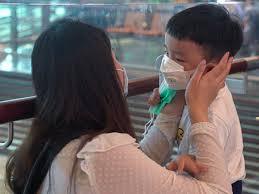
Clinical guidelines for diagnostic procedures, pharmacological management and other clinical management of suspected/confirmed COVID-19 paediatric patients.
0 notes